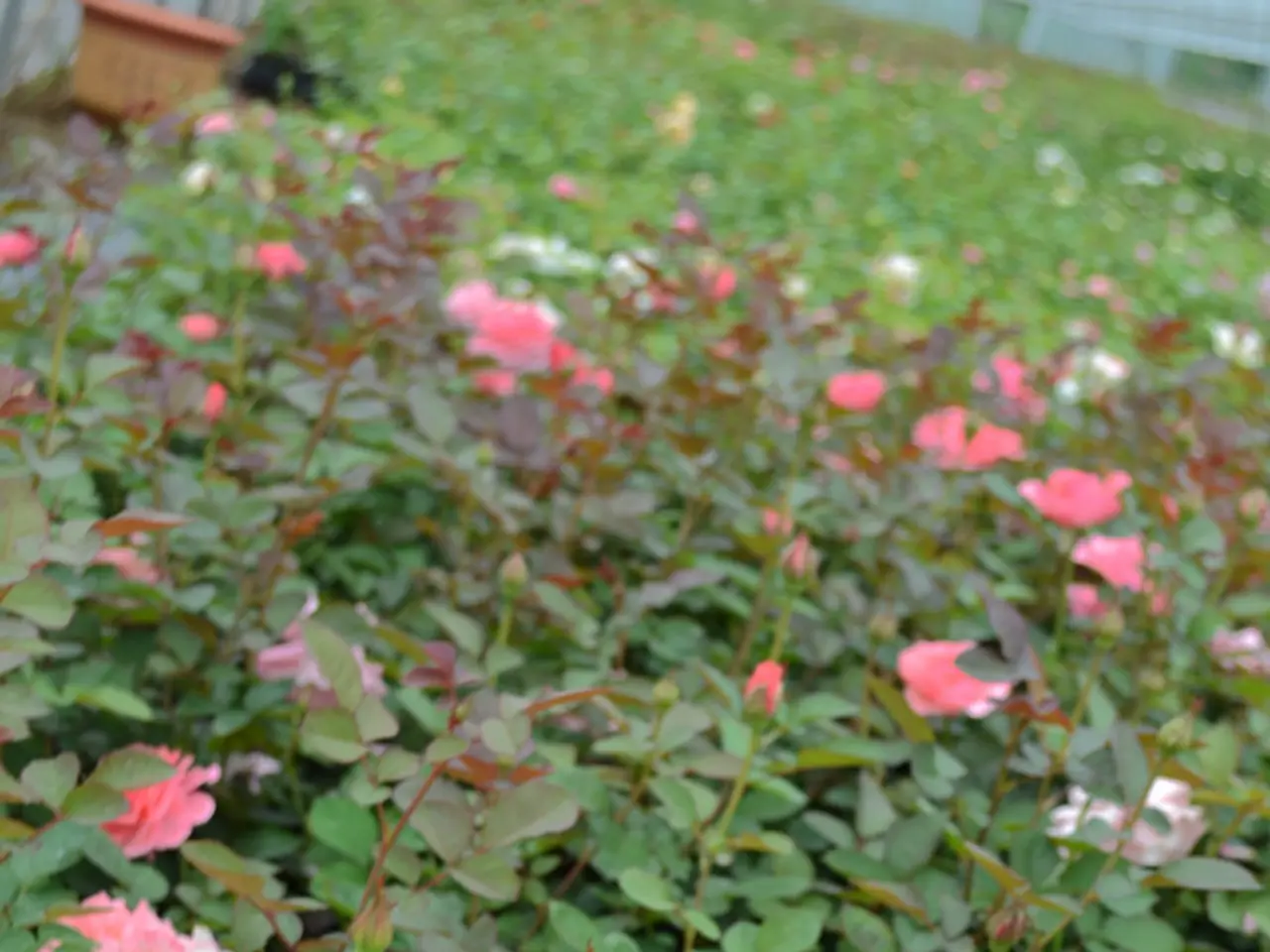Government Agrees Deals on Two Occasions to Protect Rare Medicinal Herbs, Plans to Create Garden at AIIMS
In a significant move towards preserving and promoting India's rich medicinal plant heritage, the National Medicinal Plants Board (NMPB) has signed two Memorandums of Understanding (MoUs) on August 4, 2025, in New Delhi. The MoUs were signed in the presence of Union Minister of State for Ayush (Independent Charge) and Minister of State for Health and Family Welfare, Prataprao Jadhav, at Nirman Bhawan [1].
The first MoU is with Pune-based IshVed-Bioplants Venture, aiming to conserve rare, endangered, and threatened medicinal plants using tissue culture technology. The focus of this collaboration is on developing large-scale protocols for cultivation and maintenance of medicinal plants [2]. The second MoU involves NMPB, All India Institute of Ayurveda (AIIA), and All India Institute of Medical Sciences (AIIMS), New Delhi, to develop a national-level medicinal plants garden within the AIIMS campus [3].
This national-level medicinal plants garden is an extension of the efforts to conserve rare, endangered, and threatened medicinal plants using tissue culture technology [6]. The garden is intended to serve multiple key purposes: conservation and preservation of rare medicinal plant species, public awareness and education, research, development, and sustainable management of medicinal plants, and promoting community-level actions such as Home Herbal Gardens and School Herbal Gardens [1][4].
Minister Prataprao Jadhav stated that the partnerships reflect Prime Minister Narendra Modi's vision for a healthier and self-reliant India by 2047 [7]. The national-level medicinal plants garden is a part of the collaboration between NMPB, AIIA, and AIIMS, New Delhi. The garden will share traditional knowledge with medical students, patients, and visitors [8].
The broader vision behind this project aligns with India's aim of becoming healthier and self-reliant by 2047 by blending the strengths of Ayurveda, modern medicine, and scientific validation [4]. For further updates and precise information, you can monitor releases and updates from the Ministry of AYUSH and its official communications on the NMPB website, as well as the websites and announcements from AIIMS New Delhi and All India Institute of Ayurveda, and press releases like those in the Press Information Bureau (PIB) and reputable news sources covering medicinal plant projects [5].
The initiation of the national-level medicinal plants garden was first published on August 5, 2025. No prior context was provided, but a related link suggests a focus on medicinal plant cultivation in India amid the Covid-19 crisis [9]. The garden will serve as a resource for education, research, and community engagement, playing a crucial role in preserving and disseminating traditional medicinal plant knowledge at a national scale [1][4][5].
References:
[1] PIB India. (2025, August 5). National Medicinal Plants Board signs MoUs with AIIA and AIIMS, New Delhi for setting up a National-level Medicinal Plants Garden. Retrieved from https://pib.gov.in/newsite/PrintRelease.aspx?relid=219133
[2] Business Standard. (2025, August 5). NMPB signs MoU with Pune-based IshVed-Bioplants Venture for conservation of medicinal plants. Retrieved from https://www.business-standard.com/article/news-ians/nmpb-signs-mou-with-pune-based-ishved-bioplants-venture-for-conservation-of-medicinal-plants-125898300045_1.html
[3] The Hindu. (2025, August 5). AIIA, AIIMS, NMPB to establish national-level medicinal plants garden. Retrieved from https://www.thehindu.com/sci-tech/health/aiia-aiims-nmpb-to-establish-national-level-medicinal-plants-garden/article64974104.ece
[4] Times of India. (2025, August 5). National-level medicinal plants garden to promote Ayurveda, modern medicine, and scientific validation. Retrieved from https://timesofindia.indiatimes.com/city/delhi/national-level-medicinal-plants-garden-to-promote-ayurveda-modern-medicine-and-scientific-validation/articleshow/91639399.cms
[5] India Today. (2025, August 5). National-level medicinal plants garden: A step towards a healthier and self-reliant India. Retrieved from https://www.indiatoday.in/education-today/news/story/national-level-medicinal-plants-garden-a-step-towards-a-healthier-and-self-reliant-india-1801415-2025-08-05
[6] Economic Times. (2025, August 5). NMPB signs MoUs for national-level medicinal plants garden to conserve rare species. Retrieved from https://economictimes.indiatimes.com/news/politics-and-nation/nmpb-signs-mou-for-national-level-medicinal-plants-garden-to-conserve-rare-species/articleshow/91638526.cms
[7] ANI News. (2025, August 5). NMPB signs MoUs for national-level medicinal plants garden reflecting PM Modi's vision for a healthier and self-reliant India by 2047. Retrieved from https://www.aninews.in/news/national/national-news/nmpb-signs-mou-for-national-level-medicinal-plants-garden-reflecting-pm-modi-s-vision-for-a-healthier-and-self-reliant-india-by-204720250805005635
[8] NDTV. (2025, August 5). National-level medicinal plants garden to share traditional knowledge with medical students, patients, and visitors. Retrieved from https://www.ndtv.com/india-news/national-level-medicinal-plants-garden-to-share-traditional-knowledge-with-medical-students-patients-and-visitors-2866014
[9] India TV. (2025, August 5). National-level medicinal plants garden: A step towards self-reliance amid Covid-19 crisis. Retrieved from https://www.indiatvnews.com/news/india/national-level-medicinal-plants-garden-a-step-towards-self-reliance-amid-covid-19-crisis-786421
The establishment of the national-level medicinal plants garden is an extension of efforts in science and health-and-wellness, utilizing tissue culture technology to conserve rare, endangered, and threatened medicinal plants. This garden aims to serve multiple purposes, including research, development, and sustainable management of medicinal plants.
The collaboration between NMPB, AIIA, and AIIMS, New Delhi, in creating this garden will share traditional knowledge with medical students, patients, and visitors, contributing significantly to India's aim of becoming healthier and self-reliant by 2047 by blending the strengths of Ayurveda, modern medicine, and scientific validation.




